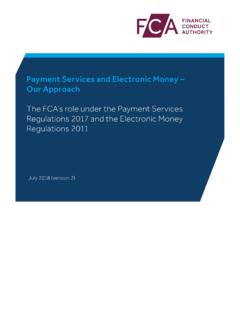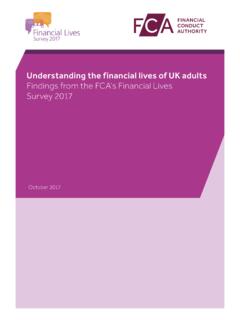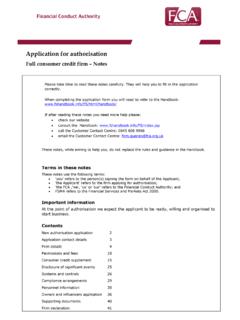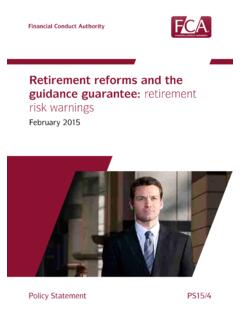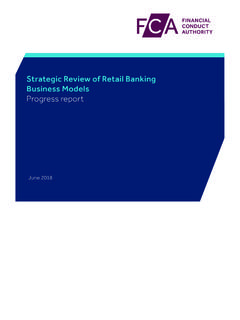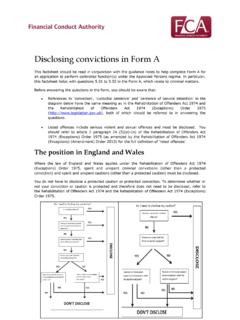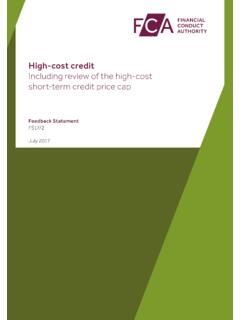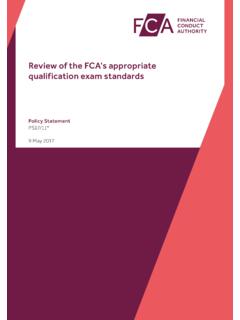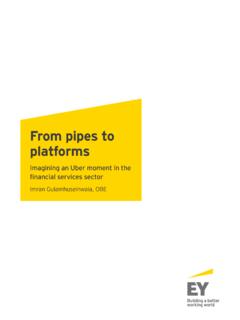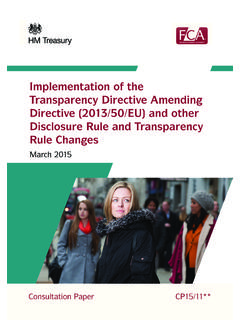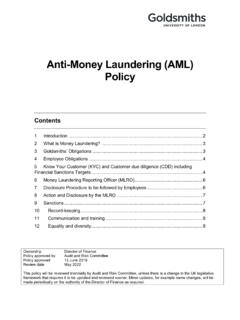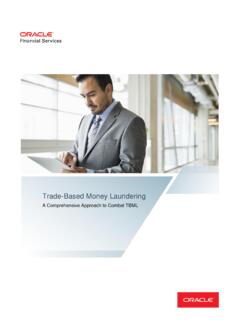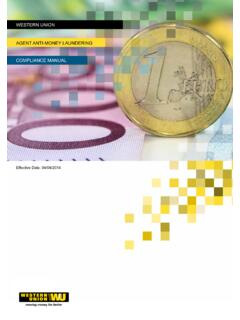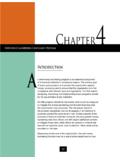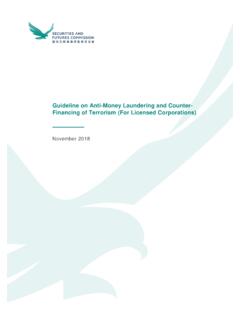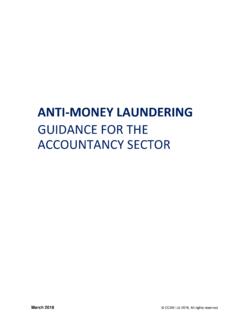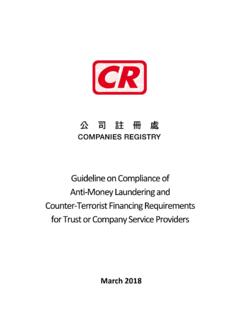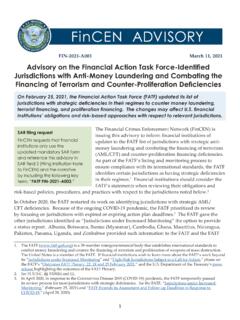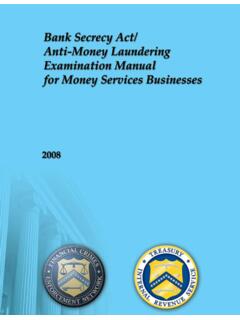Transcription of FG17/6: The treatment of politically exposed persons for ...
1 Financial Conduct Authority Page 1 of 13 Finalised guidance 1 Executive Summary Legislative Background In March 2017, we consulted on guidance in connection with politically exposed persons ( PEPs ) under section 333U of the Financial Services and Markets Act 2000 (section 333U ). Section 333U contained a duty on the FCA to issue guidance in connection with PEPs pri or to the coming into force of regulations transposing the fourth money laundering directive or any subsequent EU measures. However, as of 6 July 2017, section 333U has yet to be commenced. We now have a duty under regulation 48(1) of the money laundering , Terrorist Financing and Transfer of Funds (Information on the Payer) Regulations 2017 ( the Regulations ) to issue guidance about the enhanced customer due diligence measures in respect of PEPs. In addition, under the Regulations it says that the duty to issue guidance under section 333U does not apply to the extent that that duty is otherwise satisfied as a result of guidance issued by us under the Regulations.
2 Accordingly, we issue this guidance under regulation 48(1) of the Regulations and in doing so consider that we will have satisfied the duty under section 333U when this provision is commenced. We have decided not to consult again on this guidance as the FG 17/6 The treatment of politically exposed persons for anti- money laundering purposes July 2017 Financial Conduct Authority Page 2 of 13 substance of the guidance has already been consulted on and so no useful purpose would served to consult on it again. We have made a number of amendments to the draft during the consultation period. The EU is currently negotiating targeted amendments to the 4th money laundering Directive and the final text may impact this guidance. Alongside the guidance, we are publishing a feedback statement. Summary of the Guidance The FCA expects that firms take appropriate but proportionate measures in meeting their financial crime obligations. The MLRs set out that all firms must apply a risk sensitive approach to identifying PEPs and then applying enhanced due diligence measures.
3 The legislation and guidance clarifies that a case by case basis is required with the risk assessed of individual PEPs rather than applying a generic approach to all PEPs. The guidance provides clarity on how firms should apply the definitions of a PEP in the MLRs in a UK context. This includes providing that firms should only treat those in the UK who hold truly prominent positions as PEPs and not to apply the definition to local government, more junior members of the senior civil service or anyone other than the most senior military officials. As such it is unlikely in practice that a large number of UK customers should be treated as PEPs. Even where a UK customer does meet the definition of PEP because of the position they hold- or another country assessed as having similarly transparent anti-corruption regimes- a firm is required to recognise the lower risk of such customer s and apply the guidance on measures they can take in lower risk situations to meet their EDD obligations.
4 The guidance does, however, require firms to apply more stringent approaches where the customer is assessed as having a greater risk. In those circumstances firms will need to take further steps to verify information about the customer and the proposed business relationship. This is in line with the FCA s financial crime guidance to date where the focus has been on managing higher risk PEP relationships. Financial Conduct Authority Page 3 of 13 2 Final guidance Introduction This guidance is aimed at any institution that has its anti- money laundering systems and controls overseen by the It discusses how they can meet their obligations when opening new relationships or monitoring existing relationships. It applies only to business relationships undertaken in the course of business in the UK. The Financial Ombudsman Service will consider complaints from PEPs, their family members or close associates and will take the guidance into account when deciding what is fair and reasonable in all the circumstances of a complaint.
5 This guidance has not been approved by Treasury under Regulation 35(4)(b) and sections 330 & 331 of the Proceeds of Crime Act. However, Regulation 35)(4)(b)(i) states that firms may take into account any guidance that has been issued by the FCA. In this guidance, where we are interpreting rather than restating legal obligations, this is shown in italics. Firms should only take additional measures beyond this guidance where: this is justified on the basis of their risk assessment risk factors are associated with that customer unrelated to their position or connection to a PEP Why do PEPs, family members of PEPs or known close associates of PEPs pose a risk? PEPs (as well as their families and persons known to be close associates) are required to be subject to enhanced scrutiny by firms subject to the Regulations. This is because international standards issued by the Financial Action Taskforce (FATF) recognise that a PEP may be in a position to abuse their public office for private gain and a PEP may use the financial system to launder the proceeds of this abuse of office.
6 As FATF says these requirements are preventive (not criminal) in nature, and should not be interpreted as stigmatising PEPs as such being involved in criminal activity .2 It is because of their function that a person becomes a PEP and is required to be subject to enhanced scrutiny by firms. 1 Regulation 7(1)(a) of the Regulations sets out who we supervise. 2 Financial Conduct Authority Page 4 of 13 Likewise, a PEP s family or close associates may also benefit from, or be used to facilitate, abuse of public funds by the PEP. It is as a result of this connection that family and known close associates are required to be subject to greater scrutiny. Family and close associates are not themselves PEPs solely as a result of their connection to a PEP. What are firms obligations under the Regulations? The Regulations require firms to have in place appropriate risk-management systems and procedures to determine whether a customer or the beneficial owner of a customer is a PEP (or a family member or a known close associate of a PEP) and to manage the risks arising from the firm s relationship with those customers.
7 This includes where a PEP, family member or close associate is operating via an intermediary or introducer (this may include others in the regulated sector such as banking staff, lawyers, estate agents etc). There are many legitimate reasons for doing so (eg a solicitor acting in a property transaction). In these situations, and in line with FATF guidance, we expect firms to understand as part of their due diligence why a PEP, family member or close associate is using such an arrangement and use that as part of their assessment of risk. The Regulations state3 that in determining whether these systems and procedures are appropriate, a firm should refer to: Its own risk assessment of the money laundering /terrorist financing risks it is subject to. The FCA s financial crime guide4 contains guidance on our expectations of risk assessments in relation to overall financial crime (Box ) and specifically money laundering (Box ). An assessment of the extent to which the risk would be increased by a business relationship with a PEP, family member or close associate.
8 The FCA would expect that this is a case-by -case assessment and not an automatic assessment that a relationship creates a high risk of money laundering . Any information provided by the FCA. This will include the FCA s publication Financial Crime: a guide for firms , thematic reviews, speeches on financial crime issues or enforcement action and the FCA s annual AML report. The FCA expects firms to make use of information that is reasonably available to them in identifying PEPs, family members or known close associates. This could include the following: Public domain information such as websites of parliaments and governments, reliable news sources and work by reputable pressure groups focused on corruption risk such as Transparency International or Global Witness. Firms should use a variety of sources where possible. Reliable Public Registers in the UK this includes Companies House s register of companies and persons of significant control (PSC)5 and those maintained by the Electoral 3 Regulation 35(2) 4 5 6 Financial Conduct Authority Page 5 of 13 In line with the nature and size of the firm, it may choose, but is not required, to use commercial databases that contain lists of PEPs, family members and known close associates.
9 A firm choosing to use such lists would need to understand how such databases are populated and will need to ensure that those flagged by the system fall within the definition of a PEP, family member or close associate as set out in the Regulations and this guidance. Where a firm has identified that a customer (or beneficial owner of a customer) does meet the definition of a PEP (or a family member or known close associate of a PEP), a firm must7 assess the level of risk associated with that customer and, as a result of that assessment, the extent to which enhanced due diligence measures need to be carried The risk factors set out in this guidance will help firms to consider relevant factors when meeting these obligations. A firm s assessment9 and its decision to apply relevant enhanced due diligence measures10 need to be clearly documented. The FCA expects that a firm will not decline or close a business relationship with a person merely because that person meets the definition of a PEP (or of a family member or known close associate of a PEP).
10 A firm may, after collecting appropriate information11 and completing its assessment,12, conclude the risks posed by a customer are higher than they can effectively mitigate; only in such cases will it be appropriate to decline or close that relationship. If, having assessed the risk associated with the customer and decided on an appropriate level of enhanced due diligence measures in line with this guidance, a firm is unable to apply those measures, a firm needs to comply with the requirement13 not to establish, or to terminate, a business relationship. Where a firm proposes to have, or to continue, a business relationship with a PEP, family member or known close associate of a PEP, they are required14 to: Have approval from senior management for establishing or continuing the business relationship with that person. For these purposes, senior management is to be, as a minimum, the person holding the CF11/SMF17 money laundering Reporting Officer role.
